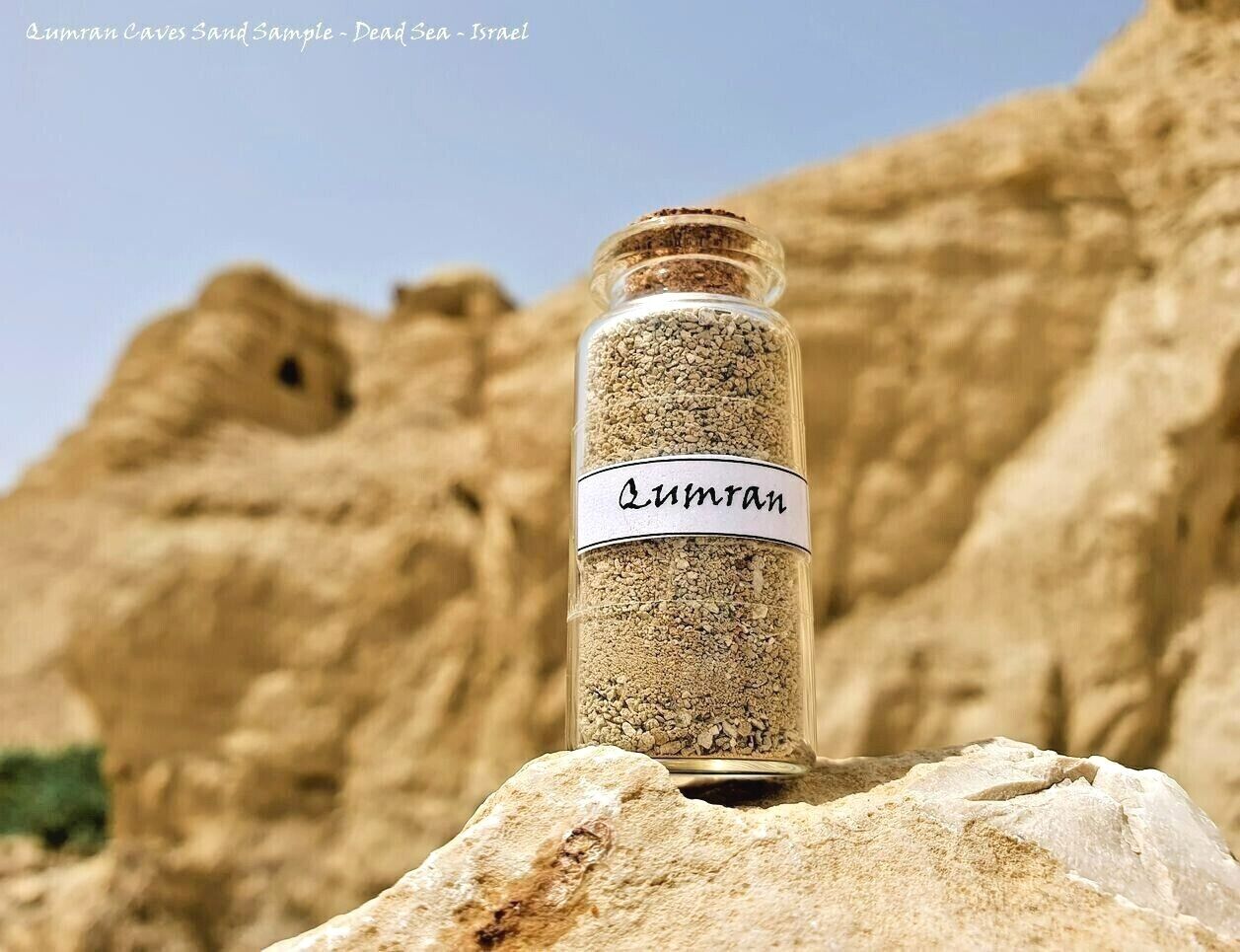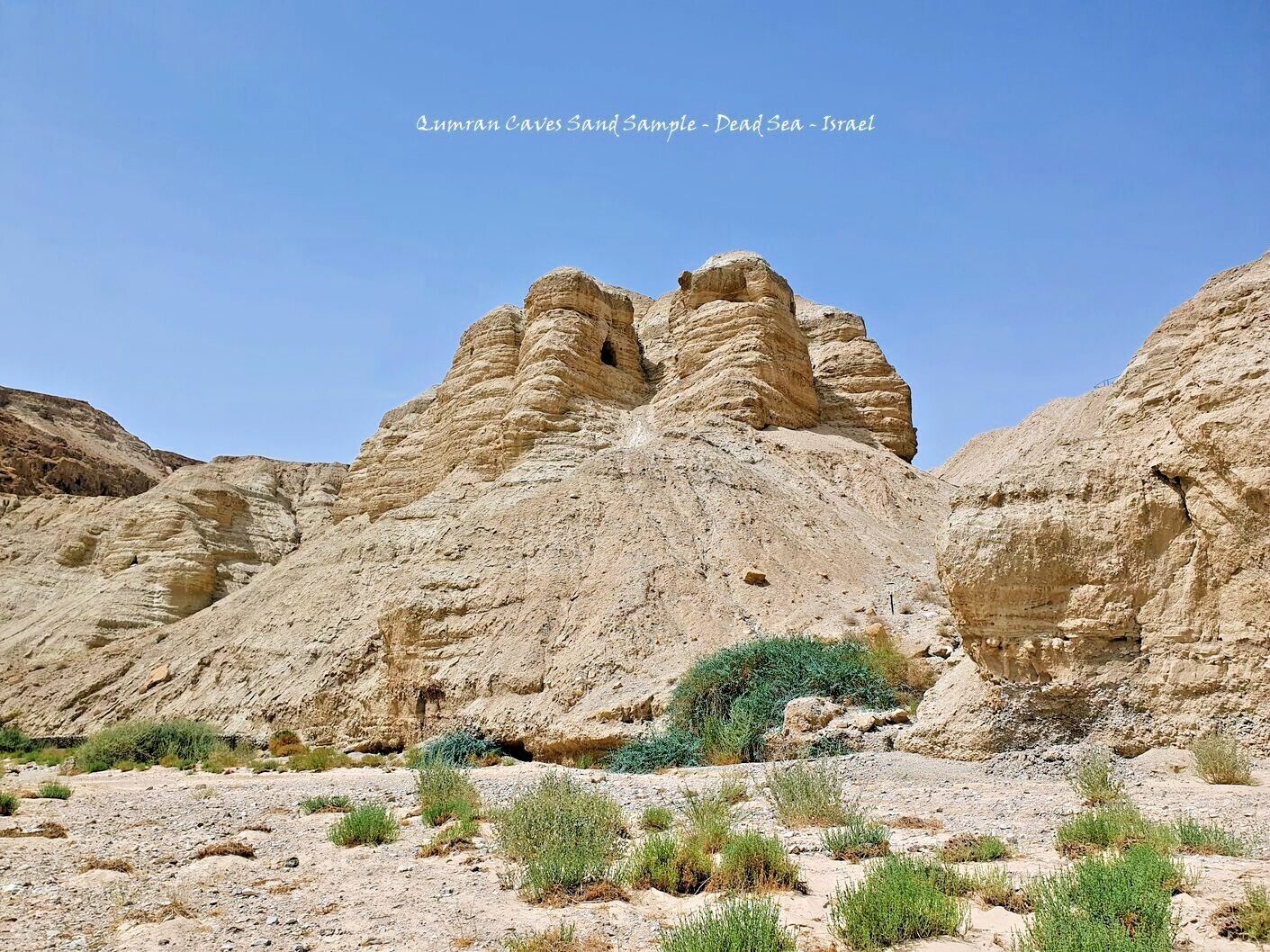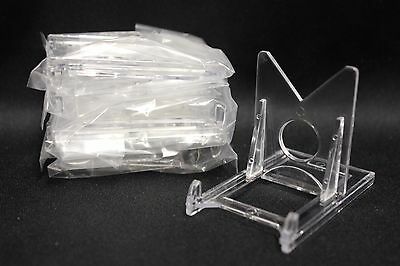-40%
ŌĆó Qumran Caves Sand Sample ŌĆó Dead Sea Scrolls ŌĆó Israel ŌĆó Holy Land ŌĆó
$ 7.91
- Description
- Size Guide
Description
Qumran Caves Sand Sample - Dead Sea Scrolls - IsraelŌŁÉ’ĖÅ
ŌŁÉ’ĖÅ
ŌŁÉ’ĖÅ
ŌŁÉ’ĖÅ
ŌŁÉ’ĖÅ
Beautiful for Display, Arts, Crafts, Nice Gift.
Size: 10ml
(22mm x 50mm)
clear glass bottle with cork.
ŌŁÉ’ĖÅ
ŌŁÉ’ĖÅ
ŌŁÉ’ĖÅ
ŌŁÉ’ĖÅ
ŌŁÉ’ĖÅ
Qumran (Hebrew:
ū¦ūĢū×ū©ūÉū¤
; Arabic:
ž«ž▒ž©ž® ┘é┘ģž▒ž¦┘å
Khirbet Qumran) is an archaeological site.
It is located on a dry marl plateau about 1.5 km (1 mi) from the northwestern shore of the Dead Sea.
The Hellenistic period settlement was constructed during the reign of Hasmonean leader John Hyrcanus (134ŌĆō104 BCE) or somewhat later.
Qumran was inhabited by a Jewish community of the Second Temple period,
which most scholars identify with the mystic sect of the Essenes; however, other groupings are also suggested.
It was occupied most of the time until 68 CE and was destroyed by the Romans during the First Jewish-Roman War,
possibly as late as 73 CE. It was later used by Jewish rebels during the Bar Kokhba Revolt.
Today, the Qumran site is best known as the settlement nearest to the Qumran Caves
where the Dead Sea Scrolls were hidden, caves in the sheer desert cliffs and beneath, in the marl terrace.
The principal excavations at Qumran were conducted by Roland de Vaux in the 1950s, and several later digs have been carried out.
History:
Since the discovery of the Dead Sea Scrolls in 1947ŌĆō1956, extensive excavations have taken place in Qumran.
Nearly 900 scrolls were discovered. Most were written on parchment and some on papyrus.
Cisterns, Jewish ritual baths, and cemeteries have been found,
along with a dining or assembly room and debris from an upper story alleged by some
to have been a scriptorium as well as pottery kilns and a tower.
Many scholars believe the location was home to a Jewish sect, probably the Essenes.
But, according to Lawrence Schiffman, the rules of the community, its heavy stress on priesthood and the Zadokite legacy,
and other details indicate a Sadducean-oriented sect either distinct from or one of the various Essene groupings.
Others propose non-sectarian interpretations, some of these starting with the notion
that it was a Hasmonean fort that was later transformed into a villa for a wealthy family,
or a production center, perhaps a pottery factory or something similar.
A large cemetery was discovered to the east of the site.
While most of the graves contain the remains of males, some females were also discovered,
though some burials may be from medieval times.
Only a small portion of the graves were excavated, as excavating cemeteries is forbidden under Jewish law.
Over a thousand bodies are buried at Qumran cemetery.
One theory is that bodies were those of generations of sectarians,
while another is that they were brought to Qumran because burial was easier there than in rockier surrounding areas.
The scrolls were found in a series of eleven caves around the settlement,
some accessible only through the settlement.
Some scholars have claimed that the caves were the permanent libraries of the sect,
due to the presence of the remains of a shelving system.
Other scholars believe that some caves also served as domestic shelters for those living in the area.
Many of the texts found in the caves appear to represent widely accepted Jewish beliefs and practices,
while other texts appear to speak of divergent, unique, or minority interpretations and practices.
Some scholars believe that some of these texts describe the beliefs of the inhabitants of Qumran,
who may have been Essenes, or the asylum for supporters of the traditional
priestly family of the Zadokites against the Hasmonean priest/kings.
A literary epistle published in the 1990s expresses reasons for creating a community,
some of which resemble Sadducean arguments in the Talmud.
Most of the scrolls seem to have been hidden in the caves during the turmoil of the First JewishŌĆōRoman War (66ŌĆō73 CE),
although some of them may have been deposited earlier.











